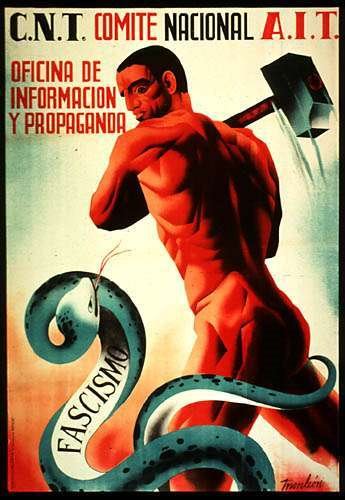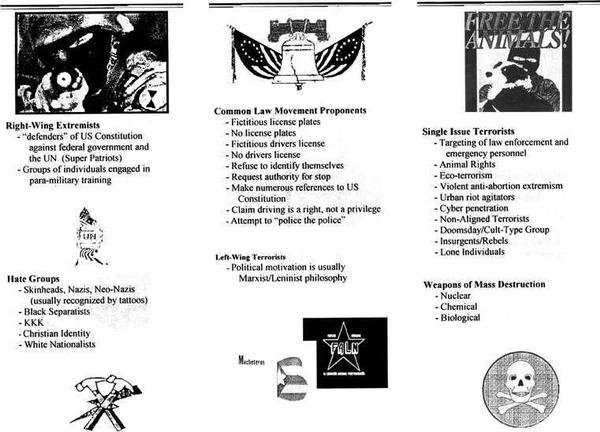basically, the idea is this: if and when the great oil producing countries in the world start selling their oil for euros instead of dollars (iran, for example, has already started doing so), all the central banks that have been buying off our debt will likely de-invest in the dollar (which has so far been *the* petrol currency, which is why we had to take out saddam because *he* started trading his oil for euros) and we will quickly be forced to pay off the debt ourselves, which means higher taxes, less spending, and an overall lower standard of living for all americans, if not a complete economic meltdown...if the federal reserve buys the debt, there will be an increase in inflation, because the federal reserve charges interest for its loans and that interest would result in a further increase in the money supply (with more money in circulation comes more demand and with more demand higher prices, or so the theory goes)...if the government, however, decided to "monetize" its debt it could do so without further inflation. in short: don't let the fed do it, or else not only will we be hit with higher taxes and less social services, our money will also become increasingly worthless, completing the vicious circle and making serfs of us all.
Spiraling US Federal Debt Triggers Decline of Dollar
A Non-Inflationary Solution to the Federal Debt Crisis
By Ellen Hodgson Brown
webofdebt.comThe U.S. federal debt has reached crisis proportions, approaching $9 trillion in 2007. U.S. Comptroller General David M. Walker has warned that just the interest on the debt will soon be more than the taxpayers can afford to pay. He observed in 2003:
We cannot simply grow our way out of [the national debt]. . . . The ultimate alternatives to definitive and timely action are not only unattractive, they are arguably infeasible. Specifically, raising taxes to levels far in excess of what the American people have ever supported before, cutting total spending by unthinkable amounts, or further mortgaging the future of our children and grandchildren to an extent that our economy, our competitive posture and the quality of life for Americans would be seriously threatened.1
Nearly half the public portion of the federal debt is now owed to foreigners, and they are pulling out of dollars into other currencies as the dollar shrinks in value. Oil-producing countries are also moving to other currencies for their oil trades, removing a major incentive for foreign central banks to hold U.S. government bonds. In an April 2005 article in Counter Punch, Mike Whitney warned:
This is much more serious than a simple decline in the value of the dollar. If the major oil producers convert from the dollar to the euro, the American economy will sink almost overnight. If oil is traded in euros then central banks around the world would be compelled to follow and America will be required to pay off its enormous $8 trillion debt. That, of course, would be doomsday for the American economy. . . . If there's a quick fix, I have no idea what it might be.2
Today, the "quick fix" of the Federal Reserve and its affiliated banks is to quietly buy back the bonds with money created with accounting entries on their books. This is not actually a new practice. The fact that banks buy government bonds with money created out of thin air was confirmed as far back as 1935, when Federal Reserve Chairman Marriner Eccles testified before the U.S. House Banking and Currency Committee:
When the banks buy a billion dollars of Government bonds as they are offered . . . they actually create, by a bookkeeping entry, a billion dollars.3
In 2005, however, this scheme evidently went into high gear, when China and Japan, the two largest purchasers of U.S. federal debt, cut back on their purchases of U.S. securities. Market "bears" had long warned that when foreign creditors quit rolling over their U.S. bonds, the U.S. economy would collapse. They were therefore predicting the worst; but somehow, no disaster resulted. The bonds were still getting sold. The question was, to whom? The Fed identified the buyers as a mysterious new U.S. creditor group called "Caribbean banks." The financial press said they were offshore hedge funds. But Canadian analyst Rob Kirby, writing in March 2005, said that if they were hedge funds, they must have performed extremely poorly for their investors, raking in losses of 40 percent in January 2005 alone; and no such losses were reported by the hedge fund community. He wrote:
The foregoing suggests that hedge funds categorically did not buy these securities. The explanations being offered up as plausible by officialdom and fed to us by the main stream financial press are not consistent with empirical facts or market observations. There are no wide spread or significant losses being reported by the hedge fund community from ill gotten losses in the Treasury market. . . . [W]ho else in the world has pockets that deep, to buy 23 billion bucks worth of securities in a single month? One might surmise that a printing press would be required to come up with that kind of cash on such short notice.4
In September 2005, this bit of wizardry happened again, after Venezuela liquidated roughly $20 billion in U.S. Treasury securities following U.S. threats to that country. Again the anticipated response was a plunge in the dollar, and again no disaster ensued. Other buyers had stepped in to take up the slack, and chief among them were the mysterious "Caribbean banking centers." Rob Kirby wrote:
I wonder who really bought Venezuela's 20 or so billion they "pitched." Whoever it was, perhaps their last name ends with Snow [referring to then-Treasury Secretary John Snow] or Greenspan.5
Those incidents were apparently just dress rehearsals for bigger things to come. In late 2005, the Federal Reserve (or "Fed") announced that beginning in March 2006, it would no longer be publishing figures for M3 (the largest measure of the money supply). M3 has been the main staple of money supply measurement and transparent disclosure for the last half-century, the figure on which the world has relied in determining the soundness of the dollar. But the curtain was now to drop. What was it that we weren't supposed to know? March 2006 was also the month Iran announced it would begin selling oil in Euros. Some observers suspected that the Fed was gearing up to use newly-printed dollars to buy back a flood of U.S. securities dumped by foreign central banks. Another possibility was that the Fed had already been engaging in massive dollar printing to conceal a major derivatives default and was hiding the evidence.6
Whatever was going on, the question raised here is this: if the Fed can buy back the government's bonds with a flood of newly-printed dollars, leaving the government in debt to the Fed and the banks, why can't the government buy back the bonds with its own newly-printed dollars, debt-free? The inflation argument long used to block that solution simply won't hold up anymore. To the contrary, it can be argued that for the government to buy back the bonds and take them out of circulation would actually avoid the dangerous inflation that is occurring now. When the Federal Reserve and commercial banks buy government bonds with money created out of thin air, they don't void out the bonds. Two sets of securities – the bonds and the cash – are created where before there was only one. This inflationary duplication could be avoided by allowing the government to redeem the bonds itself and then removing them from the money supply.
Swapping Government Bonds for Cash
Would Not Drive Up Consumer Prices
The idea that the government could liquidate the federal debt by simply printing up dollars and buying back its own bonds with them is dismissed out of hand by economists and politicians on the ground that it would produce rampant runaway inflation. But would it? Inflation results when the money supply increases faster than goods and services, and replacing government securities with cash would not change the size of the money supply. Federal securities are already money. They have been money ever since Alexander Hamilton made them the basis of the national money supply in the late eighteenth century. Converting federal securities into government-issued U.S. Notes would not cause prices to shoot up because consumers would have no more money to spend than they had before.
A "security" is a type of transferable interest representing financial value. The federal securities composing the federal debt (bills, bonds and notes) are treated by the Federal Reserve and by the market itself just as if they were money. Federal securities are traded daily in enormous volume among banks and other financial institutions around the world just as if they were money.7 If the government were to buy back its own bonds with cash, these instruments of financial value would merely be converted from interest-bearing notes into non-interest-bearing legal tender. The funds would move from M3 into M1 (cash and checks), but the total money supply would remain the same.
Policy-makers track inflation by looking at the widest measure of the money supply, called "broad liquidity." According to Investopedia (an online investors' encyclopedia):
Broad Liquidity [is] a category of the money supply which includes: all funds in M3, individual holdings in accounts, savings bonds, T-bills [Treasury bills] with maturity of less than one year, commercial papers, and banker's acceptances.8
"Broad liquidity" thus includes most government securities. Longer-term securities are not technically included in this definition, but the principle still holds: cashing them out would not affect consumer prices, because the money supply would not increase and the bondholders would have no more spending money than they had before. Consider this hypothetical:
You have $20,000 that you want to save for a rainy day. You deposit the money in an account with your broker, who recommends putting $10,000 into the stock market and $10,000 into corporate bonds, and you agree. How much money do you have in the account? $20,000. A short time later, your broker notifies you that your bonds have been unexpectedly called, or turned into cash. You check your account on the Internet and see that where before it contained $10,000 in corporate bonds, it now contains $10,000 in cash. How much money do you have in the account? $20,000 (plus or minus some growth in interest and fluctuations in stock values). Paying off the bonds did not give you an additional $10,000, making you feel richer than before, prompting you to rush out to buy shoes or real estate you did not think you could afford before, increasing demand and driving up prices.
As foreign central banks reduce their reserves of U.S. securities, U.S. bonds will be coming back to U.S. shores whether we like it or not. The question for the U.S. government is simply who will take up the slack when the creditors quit rolling over U.S. debt. Again, when the Fed and commercial banks step in and buy U.S. securities with dollars created with bookkeeping entries, the result is highly inflationary. This result could be avoided by letting the government buy back its own bonds and taking them out of circulation.
In 1933, Franklin Roosevelt pronounced the country officially bankrupt, exercised his special emergency powers and, with a wave of the royal Presidential fiat, ordered the promise to pay in gold removed from the dollar bill. The dollar was instantly transformed from a promise to pay in legal tender into legal tender itself. Seventy years later, Congress could again acknowledge that the country was officially bankrupt, propose a plan of reorganization, and turn its debts into " legal tender." Alexander Hamilton showed two centuries ago that Congress could dispose of the federal debt by "monetizing" it, but Congress made the mistake of delegating that function to a private banking system. Congress needs to rectify its error and monetize the debt itself, by buying back its own bonds with newly-issued U.S.
Notes
1 National Press Club speech by David Walker in Washington on September 17, 2003.
2 Mike Whitney,"Coming Sooner Than You Think: The Economic Tsunami," www.counterpunch.com (April 8, 2005).
3 Quoted in Jerry Voorhis, The Strange Case of Richard Milhous Nixon (New York: S. Erikson Inc., 1972).
4 Rob Kirby, "Pirates of the Caribbean," www.financialsense.com (March 18, 2005).
5 Rob Kirby, "Currency Conundrums," www.financialsense.com (November 21, 2005).
6 Robert McHugh, "What's the Fed Up to with the Money Supply?", safehaven.com (December 23, 2005); Ed Haas, "Iran, Bourse and the U.S. Dollar," www.NewsWithViews.com (January 28, 2006); "The Dollar May Fall This March," Pravda (January 14, 2006); Martin Walker, "Iran's Really Big Weapon," www.globalresearch.ca (January 23, 2006); and see Chapter 32.
7 William Hummel, "Zeroing the National Debt," Money: What It Is, How It Works, http://wfhummel.net (March 3, 2002).
8 "Broad Liquidity," www.investopedia.com (2006).
Ellen Brown, J.D. developed her research skills as an attorney practicing civil litigation in Los Angeles. In Web of Debt, her latest book, she turns those skills to an analysis of the Federal Reserve and "the money trust." She shows how this private cartel has usurped the power to create money from the people themselves, and how we the people can get it back. Brown's eleven books include the bestselling Nature's Pharmacy, co-authored with Dr. Lynne Walker, which has sold 285,000 copies.
![]()

 BUY ME!
BUY ME!
 Imagine the following scenario:
Imagine the following scenario:
















